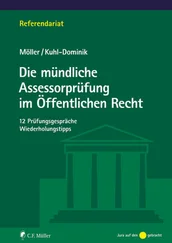“Dear Colleague?” Rebecca said, as John returned with the tea.
John smiled indulgently.
“He wants you to quit your job and move to Virginia, and he sends a form letter?”
“He doesn’t seem to be one for the social graces,” John said. “Anyhow, I can see it. He’s busy down there overseeing all the construction, can’t sleep one night, he hammers out this letter in one draft, takes it to—”
“Where does he get all the money, I wonder?” Rebecca said.
“The money?”
“To build this little Xanadu down there. It sounds like a big undertaking.”
“Maybe he has clients already,” John said.
“Maybe he went to the bank,” Rebecca said, deadpan. “Maybe he went to the bank and said he needed a small-business loan to wipe the smile off the face of our age.”
Her sarcasm closed off any further conversation about it. John was less cynical by nature. While Osbourne’s plan might be a crazy one, it never occurred to him that it was anything less than sincere — that Osbourne was not set to try to do exactly what he said he would do. You had to admire a man’s sincerity, John said (silently, to Rebecca who slept beside him), a man’s courage, even if he was doomed to failure. He lay awake and watched the shadow of the ceiling fan in their bedroom for what seemed like hours.
At the office Monday he found himself looking furtively into the faces of his colleagues, watching for some reflection of his own absentmindedness that might indicate someone else there had received a “Dear Colleague” letter too. But they looked as they always looked, poorly rested and unsurprisable. It might have meant that Osbourne had written to no one at the agency but him, or else that others simply had a better poker face than John did, which was certainly the case. Roman asked him once, when they were batting around ideas about the upcoming campaign for the Beef Council, if something was bothering him. He lied and said no.
He said nothing to anyone. It was easy to think of good reasons for his circumspection. For one, it might sound like he was lording it over his coworkers if he brought up the letter from Osbourne and no one else had received it: no one wants to be among the non-elect, even if the venture was one they would probably regard as insane. And there was no point in openly discussing another job opportunity, no matter how farfetched, in your own office — it could only lead to repercussions, subtle or otherwise. Most of all, though, he had to admit, he was just reluctant to expose this whole idea to the kind of scorching cynicism he knew Roman and the others would unleash upon it. John knew they would react with jokes and insults, and would expect him to join in the mockery session, which he would eventually cave in and do.
A few days later they were still trying to find a way to help the beef sellers sell more beef. “Here’s the thing,” Roman said. “At this point everybody knows beef is bad for you. It makes you fat, it clogs your arteries, it gives you cancer. It eats up the rain forest, cows fart and kill the ozone layer, blah blah blah. So you can’t—”
“Everybody knows this?” John said.
“Well, maybe there are people in the Midwest who don’t know it.” The Midwest, for Roman, was more a psychic space than a geographic one, filled with conservative farm families who were virtual zombies of sincerity. “But those people are eating meat three meals a day already; they’re not who the campaign’s targeted at. They couldn’t eat any more beef. We’re aiming at the people who are trying to cut down on beef. They’re doing it because it makes them feel smart. Stupid ads that show happy families barbecuing just reinforce their position. We have to beat them to the punch.”
“By telling them that beef gives you heart attacks and causes global warming? That’ ll—”
“By not pretending we don’t know it. We know it and we’re trying to get them to eat more meat anyway. We let them know we know it. That’s the joke.” He stood up and paced around the cramped office; as always when he was excited by an idea, he looked almost angry. “‘Six burgers a week. That’s all we ask.’ Just be up-front about it, and maybe give it that little extra sarcastic tweak, to let them know that we know. People really respond to that.”
“Let them know that we know what?” John said.
Roman held out his hands. “That they know,” he said.
John smiled uneasily, but he didn’t say any more, intimidated by the force of Roman’s confidence. He hadn’t gotten into advertising in the first place to make any sort of statement, but rather to exercise, at something close to full capacity, his skills as an artist. If there were ideals in the service of which he wanted those skills employed, he might have become a painter, started a magazine, something in that line. But he had no specifically individual creative impulse. Nor did he care to spend the one life he was given in a state of righteous poverty — he didn’t care about getting rich, but he also saw no reason to do without comforts that were easily within his grasp. So did his work then put forth the values, the beliefs, of whoever happened to hire him? On the contrary — in his experience, he and Roman were hired to do exactly as they pleased. The clients might be unhappy with the results, even to the point of withdrawing their business; but while he was working, John was left alone.
So what was behind the work they did? John knew that most people would have assumed that he himself was behind it, he and Roman and their other colleagues; yet he put nothing of what he believed into it. He felt much more like an instrument — an instrument of what seemed, especially after his we-know-that-they-know conversation with Roman, like a vast and powerful blankness, an opacity. Of course, maybe this was just a lie he was telling himself in order to displace his own responsibility (not for beef consumption, about which he couldn’t have cared less, but for the blankness itself). Or maybe there was something substantive behind that opacity and he just wasn’t astute enough to make out what it was.
He didn’t say anything about all this, to anyone. He let Roman take the six-burgers-a-week idea to Canning, who loved it, and told them to come up with five more spots in time for the trip out to Omaha at the end of the month.
One Wednesday evening John got home before Rebecca and picked up the mail downstairs. Out fell a postcard of Monticello; it was addressed to him but had no other salutation. On it was written, “Cynicism is not useless — only we’re conditioned to be cynical about the wrong things. Before it’s too late let us try to reconnect with the better angels of our nature.” It was unsigned. John felt his heart quicken as he stared at the Virginia postmark. He stuck the postcard under a magnet on the refrigerator door; but after looking at it for a few seconds he took it down again and hid it beneath some magazines on his bedside table, where Rebecca wouldn’t see it.
He didn’t know why he should be afraid to tell anyone what he was thinking. Still, he couldn’t figure out an angle from which to approach the subject with his girlfriend. Then one night, as they were riding the subway home from the multiplex across from Lincoln Center, she brought up, for the first time in at least a year, the subject of marriage.
“I just would feel better,” she said, holding his arm, “if there were some kind of plan about it, if we knew what we were doing.”
“Feel better?” he said. “You mean you don’t feel good right now?”
“I feel okay,” she said. “Just, I don’t know, a little sad. From time to time, not always. And not because I feel unfulfilled because I don’t have a baby or any crap like that. It’s just … time is passing, you know? Time is passing. And I don’t even notice it. We’re so busy that it’s very easy not to notice.”
Читать дальше












